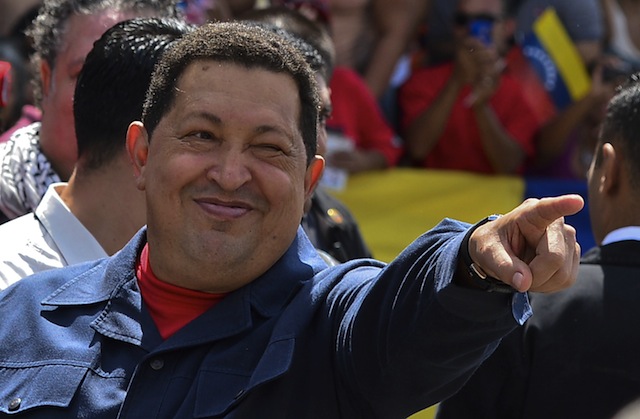Open Letter to The Economist – RE: “Hugo Chávez’s Rotten Legacy”

“Hugo Chávez’s Rotten Legacy” bequeathed by The Economist offers many sloppy factual errors regarding the memory of Venezuelan President Hugo Chávez. In its shamelessly ideologized bushwacking of the Venezuelan leader, Chávez is presented as an anti-democratic, autocratic, and anti-private business zealot, as he allegedly cynically buys votes for himself by extravagantly wasting oil revenues on “handouts” to the poor.
The Economist’s claim that Latin America had “embraced democracy” in the 1990s is highly tendentious, at least in the case of Venezuela. In the decades before Chávez lifted his sword in the name of the poor, Venezuela operated under the Punto Fijo political pact under which the country’s two dominate parties, the right-wing Christian Democrats and left-leaning Social Democrats, agreed to alternate power, excluding all of the nation’s other parties. As Michael Coppedge notes in the journal Comparative Politics, Venezuela under Punto Fijo was “as authoritarian as a country could be and still claim to be democratic.”
Venezuela was also corrupt. So infamous was President Carlos Andrés Pérez (1974-1979 and 1989-1993) that, when Pérez secured his second term in office, many Venezuelans said that he was “coming back to steal what he missed the first time.” Pérez eventually was convicted in 1996 of “misusing” $17.2 million USD in government funds and spent time under house arrest and in jail.
However rabidly The Economist despises Chávez for his politics and his leftist prattling, his administrations were incontestably democratically selected, with the elections being overseen by international observers. These votes were also always held in a context of vigorous and open debate, with the five major over-the-air TV networks being either neutral or strongly anti-Chávez. State television, so denounced by Chávez’s critics, consistently was able to claim only a 5 percent share of television audiences. Likewise, nine of the ten major Venezuelan newspapers were anti-Chávez. Chávez’s opponents enjoyed broad-gauge opportunities to make their case, assailing viewers and readers alike with their rabidly anti-Chávez views and who openly challenged the constitutionally elected Chávez. The president’s opponents openly backed the April 2002 failed coup against the elected government that temporarily removed Chávez from power.
Venezuela today has a capitalist economy with important state involvement, a system not dissimilar to other mixed capitalist economies in Western Europe. Private U.S. corporations, including Halliburton and Chevron working on oil extraction, continue to operate and prosper in Venezuela in contrast to other Latin American nations, such as Mexico, that offer little or no role for foreign companies in the oil industry.
The “handouts” derided by The Economist include the Programa de Alimentación Escolar, which provides free breakfasts, snacks, and nutritious lunches to nearly half of Venezuela’s school children; the Misión Barrio Adentro public health program, which has helped lower infant mortality in Venezuela from 26.17 when Chávez took office in 1999 to 20.18 in 2012; and Misión Milagro, a program that has restored vision to over two million sightless individuals, since the program began operating in 2004. In fact, the social services Venezuela provides to its own citizenry have already been emulated in Brazil, Argentina, Ecuador, and Perú.
With articles like “Hugo Chávez’s Rotten Legacy,” The Economist is cementing its growing reputation as a fact-challenged right-wing propaganda vehicle and a publication, which is still trying to properly define itself as passionately committed to its panjandrum class but hardly by a balanced appeal. Such a publication doesn’t deserve to be taken seriously by fair-minded people, because it is hard-put to offer impartial arguments in a democratic debate.
Dr. Ronn Pineo, Senior Research Fellow at the Council on Hemispheric Affairs, as well as Professor and Chair of the Department of History at Towson University
In response to The Economist: Hugo Chávez’s Rotten Legacy
Please accept this article as a free contribution from COHA, but if re-posting, please afford authorial and institutional attribution. Exclusive rights can be negotiated.
For additional news or analysis on Latin America, please go to: Latin News

